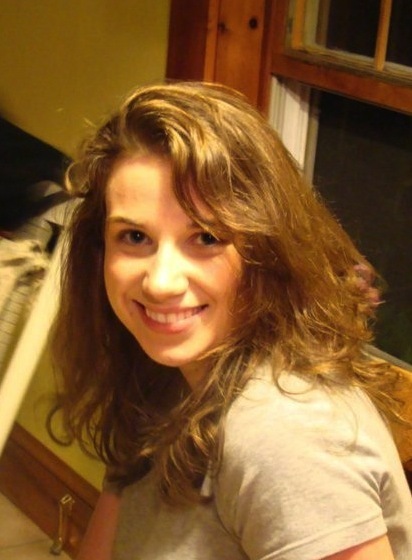As a youngster, Anna Nutter remembers piling in the car the very afternoon that school let out and making the long family drive from Texas to Maine.
Her mother, who grew up here, couldn’t wait to escape the broiling Houston heat and return home to the cool breezes of a Maine summer.
Along the way, they would stop at every Civil War and Revolutionary War battlefield or monument they came across. Those detours broke up what felt like an endless drive, and instilled a sense of wonder in young Anna’s mind. She remembers gazing out across the battlefield at Gettysburg and thinking, “This is awe-inspiring.”
Probably because of those side trips to America’s past, Nutter has always been interested in history. Beginning this week, she has the chance to experience a piece of American history herself.
Nutter, a junior history major at Bowdoin College who lives in Portland, is participating in the 2011 Student Freedom Ride, an experiential learning opportunity for college students organized by PBS.
To mark the 50th anniversary of the Freedom Rides, the PBS television show “American Experience” will retrace the ride with 40 modern-day college students. Filmmaker Stanley Nelson will accompany them, along with several of the original riders. Nelson’s film, “Freedom Riders,” will premiere on “American Experience” at 9 p.m. May 16 on PBS.
Nutter will board a bus in Washington, D.C., this week, and, over 10 days, retrace the original Freedom Ride of 50 years ago.
The original riders consisted of civil rights activists, both black and white. Some were college-age; many were older. They bused into the segregated Southern states to test a Supreme Court decision outlawing racial segregation.
The first riders left Washington on May 4, 1961. They were scheduled to arrive in New Orleans two weeks later, but encountered unimaginable violence along the way, especially in the Deep South.
They set out on two commercial buses. A Ku Klux Klan-inspired mob set the first bus ablaze in Anniston, Ala., and attacked the riders as they exited the burning bus. When the second bus arrived, Klansmen boarded it and beat the riders.
More rides followed. Civil rights activists refused to allow violence or jail deter them, and they spent much of the spring and summer of 1961 traveling the South in integrated buses.
Their heroic efforts inspired the civil rights movement, which led to changes in U.S. law and attitudes about race and equality.
As a history buff, Nutter felt compelled by the opportunity to participate in a national conversation about the role of civic engagement.
“As much as I love studying history, you lose sight of what you’re studying in all the articles and papers that you read,” she said. “This is a way to capture the spirit of the event. It’s the difference between reading about history and experiencing it.”
Nutter was chosen from almost 1,000 applicants. She and the other college students selected for this experience represent 33 states and the District of Columbia. Some students grew up in other countries.
They wrote essays to qualify for the ride, and will post updates on Facebook and Twitter throughout their experience.
In no way does Nutter think her journey this month mirrors what the original riders went through. Instead of a dungy old bus shrouded in fear, she and her peers will be travel in an air-conditioned coach with wi-fi. They will be welcomed wherever they go, and their trip will be celebrated along the way.
It’s a learning experience, and a chance to share with others to mark the progress our country has made in a half-century. In some ways, this ride also will remind us of progress yet to come.
“American Experience” executive producer Mark Samels said this experience is not only about history. In a statement, he reminded us that what we’ve seen recently in Egypt is not unlike what the original Freedom Riders experienced. They put themselves in harm’s way to achieve a better society.
“Fifty years after the original Freedom Rides, young people all over the world are once again having their voices heard. They’re using new and very different tools to do that, but drawing on lessons from history to inform how they use those tools. It’s those lessons from 1961 and how they are informing civic engagement today that we look forward to exploring on this ride,” he said in a news release.
When Nutter returns to Maine, she will continue her history studies, and attempt to give understanding and contexts to events that predate all of us. Her current project involves writing a paper about the history of slavery in Maine.
Staff Writer Bob Keyes can be contacted at 791-6457 or at:
bkeyes@pressherald.com
Follow him on Twitter at:
twitter.com/pphbkeyes
Send questions/comments to the editors.




Success. Please wait for the page to reload. If the page does not reload within 5 seconds, please refresh the page.
Enter your email and password to access comments.
Hi, to comment on stories you must . This profile is in addition to your subscription and website login.
Already have a commenting profile? .
Invalid username/password.
Please check your email to confirm and complete your registration.
Only subscribers are eligible to post comments. Please subscribe or login first for digital access. Here’s why.
Use the form below to reset your password. When you've submitted your account email, we will send an email with a reset code.